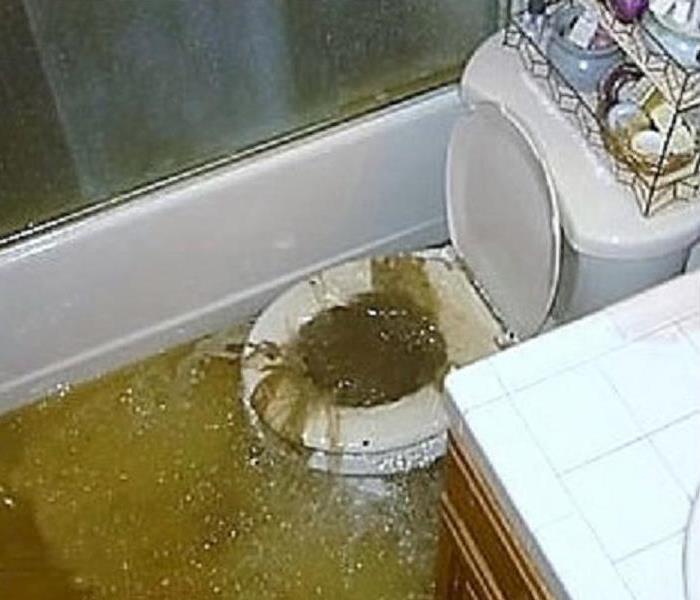Septic or Sewer System Backs Up Into Your Property or Building...Here are SAFETY Tips!
4/19/2017 (Permalink)
Septic or Sewer System Backs Up Into Your Building...Here are SAFETY Tips!
Watch out: sewage spills contain contaminants that can cause serious illness or disease. Disease causing agents in raw sewage include bacteria, fungi, parasites, and viruses and can cause serious illnesses including Hepatitis A.
If a building has been flooded by sewage or wastewater there may be unsafe electrical wiring, bacterial and pathogen hazards, mold hazards, even unsafe mechanical systems.
- Turn off electrical power in the area that has been flooded if there is any chance of electrical wires, extension cords, or electrical appliances or fixtures coming in contact with standing water or wet materials
- Vacate sewage-contaminated areas right away. Areas of sewage spill should not be occupied by people who are not wearing appropriate protective equipment as they are dangerous:
- Stop flushing toilets
- Turn off running water that is sending water into the drain system (clothes washer, sinks etc)
If the sewage or wastewater are being spread by water from a burst plumbing supply or hot water heating pipe, turn off the water to the building and if needed for safety or to stop further you may also need to turn off the (hot water or steam) heating system.
Items that have been soaked and are not salvageable may best be placed outdoors. By removing wet and contaminated materials from the building it may be easier to inspect, repair leaks, and clean the building itself.
Watch out: do not handle sewage-contaminated materials without proper personal safety protection: there are bacterial, pathogenic, respiratory and infection hazards.
- Act promptly.
- Watch out: The longer that sewage waters remain in a building or on its contents the greater the chance of spreading illness or disease and the greater the chance of causing a costly mold contamination problem in addition to the sewage problem. High indoor moisture caused by standing water can cause mold contamination to form on other building surfaces even if they were not directly wet by the sewage spill.
- Don't panic: while prompt action is needed as we just explained, don't be in such a rush that you do something dangerous. Also, if you sound terrified when calling a contractor for assistance the result may be the imposition of inappropriate or costly steps.
- Call a professional water damage restoration authority - For other than a trivial spill on a tiled bathroom floor you may need help from a professional water damage or restoration company.
- Notify your insurance company that there has been a sewage spill in the building
- Notify your municipal authority or sewer department if your home is connected to a public sewer
- Contact your local health department for advice if your home is connected to a private septic system






 24/7 Emergency Service
24/7 Emergency Service
